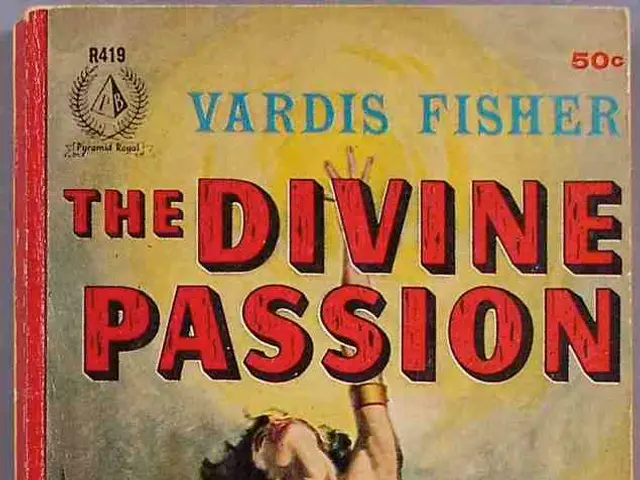Chancellor Discusses Topic of Love
A Rare Glimpse into the Hearts of Scholz and Merz: A Political Debate of Emotion and Rhetoric
Last night, Germany witnessed a unique spectacle as the political duelists, Olaf Scholz and Friedrich Merz, squared off in a heated debate. The event, moderated by Marion Horn and Jan Philipp Burghard, aimed to reveal the human side of the candidates, offering a glimpse into their personalities beyond the political arena.
Both Scholz and Merz were genuine in their emotional moments during the debate, showcasing a side of themselves that is often hidden from the public eye. Scholz spoke about love, while Merz shared a deeply personal moment about two deceased siblings. These heartfelt moments added a layer of authenticity to the debate, setting it apart from the usual polished political speeches.
The debate was characterized by emotion over polished rhetoric, a departure from the norm in political debates. The duelists, Scholz and Merz, rhetorically complemented each other, with Merz's sharp, concise, and precise rhetoric contrasting Scholz's warmer, more connected, and heartfelt speech. This contrast, yet complementarity, is intriguing, as it suggests the potential for these two leaders to work together effectively.
The idea of Scholz and Merz working together is not just an intriguing thought but could potentially be beneficial for the country. Given their mutual respect, contrasting yet effective rhetorical styles, and the trust they have built, they could leverage each other's strengths to navigate the complexities of German politics. However, the current political landscape paints a different picture.
After their political debates and the recent change in leadership, Olaf Scholz and Friedrich Merz currently have a competitive but formal political relationship rather than a collaborative one. Merz, who became Chancellor in May 2025, has replaced Scholz, who led the prior traffic light coalition (SPD, Greens, FDP). The transition was marked by competition, with Merz narrowly winning the chancellorship after two Bundestag votes.
The coalition dynamics reflect policy tensions, with Merz's government taking a sharper stance on migration and homeland security, causing controversies and opposition from parts of the SPD. This indicates that direct collaboration between Merz and Scholz is likely limited to formal coalition governance rather than close political partnership.
Since Merz is the Chancellor, Scholz has moved into the opposition or at least away from the chancellery role, reducing the likelihood of direct collaboration. Despite this, Scholz has evolved his rhetoric since the first debate, appearing more confident, clear, and even passionate.
None of the recent sources suggest any personal or political collaboration or alliance between Merz and Scholz following their debates and Merz taking office. Instead, the new administration under Merz is redefining German politics with new coalitions and approaches contrasting Scholz’s legacy.
In summary, the political relationship between Olaf Scholz and Friedrich Merz after their debates is characterized by political rivalry and coalition tension rather than partnership or collaboration, with no current signs that they are working together beyond formal coalition government requirements. The debate, however, offered a rare glimpse into the personalities of these two leaders, hinting at the potential for a unique collaboration in the future.
[1] "Germany's New Government: The Coalition Deal Explained" (BBC News, 2025) [4] "The New German Government: A Look at the Coalition's Policies and Challenges" (Der Spiegel, 2025)
Read also:
- "Primal instincts at play: Subnautica 2 designer notes our affinity for weapon-making stems from a fundamental desire for protection and sustenance"
- Dragon Age series might find a promising future with remasters, according to ex-BioWare producer Mark Darrah, but it seems unlikely that EA and BioWare possess the capability for such undertakings at present.
- In Verdansk, the dominance of automated systems in Warzone is causing an integration with Stalker, leading to a blurring of lines in the user's mind.
- Despite the significant success of Clair Obscur: Expedition 33, its director asserts that traditional prejudice towards turn-based RPGs persists, with real-time action games generally receiving smoother acceptance.








